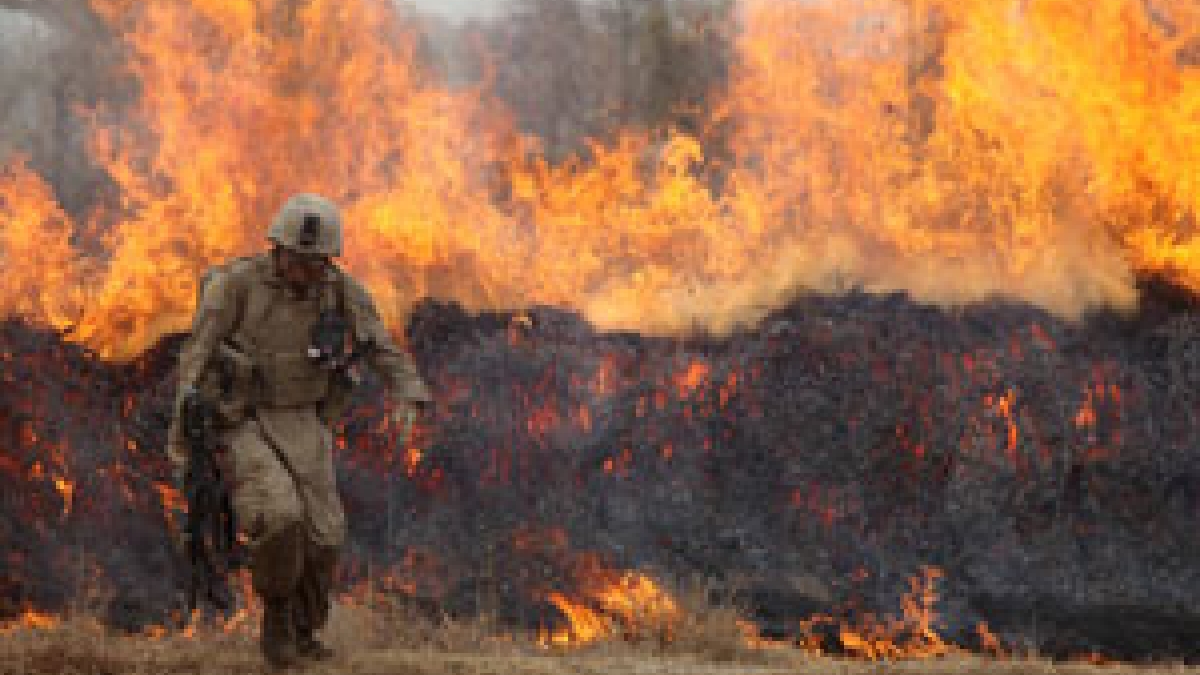Iraq, Afghanistan war photos on display at ASU journalism school

A national exhibition of photographs from the Afghanistan and Iraq wars is currently on display at Arizona State University's Walter Cronkite School of Journalism and Mass Communication.
“Conflict Zone,” showcasing dozens of images captured from the front lines, opened March 27, in the Cronkite School’s First Amendment Forum on the ASU Downtown Phoenix campus.
The weeklong traveling exhibition highlights the work of numerous photographers, including combat photographer Bill Putnam, as well as Chris Hondros, a Pulitzer Prize-nominated photojournalist who was killed while covering the Libyan Civil War in 2011. The exhibition features a variety of photographs showing what soldiers and journalists experience – ranging from turbulent battle scenes to intimate moments of everyday life.
“The ‘Conflict Zone’ exhibition offers the public a rare opportunity to get a glimpse of the emotional toll of war through the lenses of some of the best combat photographers,” said Kristin Gilger, associate dean of the Cronkite School.
“‘Conflict Zone’ is a unique show. It’s a global show with American, British and Iraqi photojournalists,” said Putnam, a U.S. Army veteran who was deployed to Iraq and Kosovo. “It shows that whilst the roles of a journalist and soldier on the battlefield are different, they're both affected by things they see on the battlefield.”
Putnam's photos have appeared in The Washington Post and Newsweek, among others.
Marine veteran Steve Danyluk and former Washington Post correspondent Jackie Spinner created “Conflict Zone” to help photographer João Silva, who lost both of his legs after stepping on a landmine in Afghanistan while on assignment for The New York Times in 2010. The exhibition has traveled to numerous cities, including New York, Chicago and Washington, D.C., generating critical acclaim and support for The Independence Fund, a volunteer nonprofit dedicated to serving the severely injured after they return home from war. Danyluk is executive editor of The Independence Fund, which sponsors the exhibition.
“This is really a unique opportunity for people to see work from both civilian and military photographers all in one place,” said Spinner, now a journalism professor at Columbia College Chicago. “The exhibit is apolitical, as the best conflict journalism should be. It exists simply to show people what war looks like from the perspective of those of us who were there to document it.”
The “Conflict Zone” exhibition is at the Cronkite School through April 3. It is open to the public 8 a.m. to 5 p.m., Monday through Friday, in the First Amendment Forum, located on the second floor of the Cronkite School.